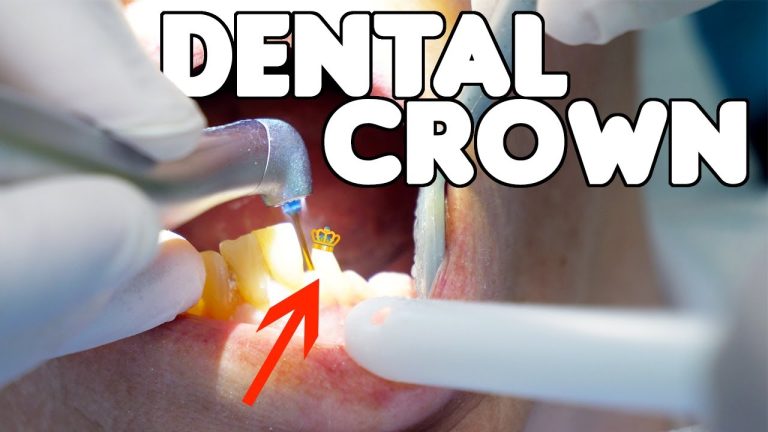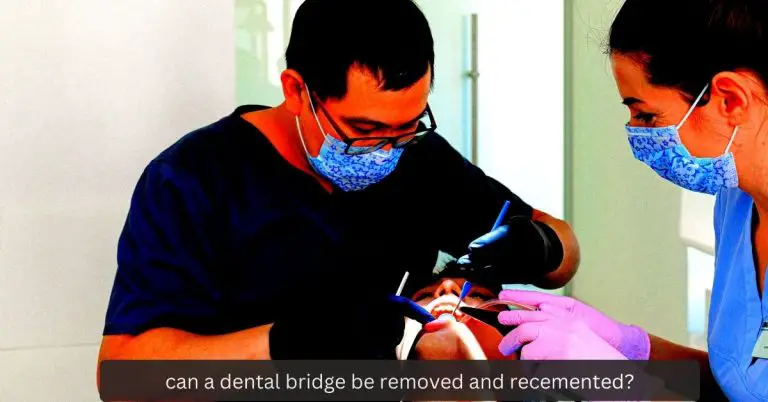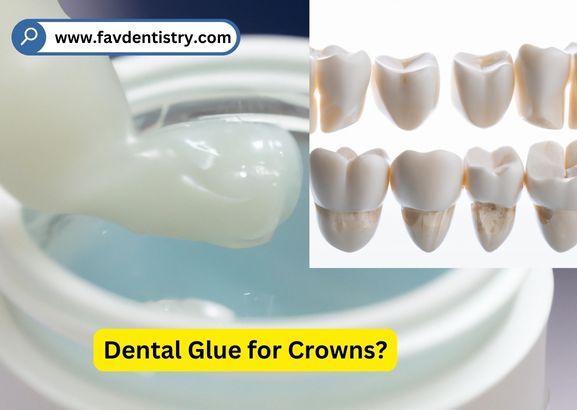Last Updated on 3 weeks by DR. ALBIN SIPES
Dental crown pain with pressure is a common issue caused by an ill-fitting crown or an underlying dental problem. Experience discomfort?
It’s best to address the issue promptly, as untreated pain can lead to further complications. Many people may experience dental crown pain when applying pressure to the affected area. This discomfort can be caused by various factors, such as an improperly fitted crown or an underlying dental issue.
If you’re experiencing discomfort or sensitivity when biting or chewing, it’s essential to address the problem promptly. Ignoring the pain can lead to further complications, such as tooth decay or gum disease. In this article, we will discuss the possible causes of dental crown pain with pressure and explore treatment options to help alleviate the discomfort.
Causes Of Dental Crown Pain With Pressure
Damaged nerves, ill-fitting crowns, tooth decay, and infections are common causes of dental crown pain with pressure. When nerves in the tooth are damaged, it can result in sensitivity and discomfort. Ill-fitting crowns can cause pain when pressure is applied, as they may put excessive force on the underlying tooth structure.
Decay underneath the crown can lead to inflammation and pain when pressure is exerted. Infections, such as abscesses, can also cause pain when pressure is applied to the tooth. It’s important to address these issues promptly by consulting with a dentist, who can evaluate the cause of the pain and recommend appropriate treatment to alleviate the discomfort.
Avoid delaying seeking dental care if you experience pain with pressure on a dental crown to prevent further complications.
Relieving Dental Crown Pain With Pressure
Dental crown pain with pressure can be relieved using various methods. Over-the-counter pain relievers can provide temporary relief. Applying a cold compress to the affected area can also help reduce discomfort. It is important to avoid consuming hard and crunchy foods that can cause additional pain and discomfort.
By following these guidelines, individuals experiencing dental crown pain can find some relief and improve their overall comfort. Remember, it is always best to consult with a dentist for a proper diagnosis and to discuss any ongoing pain or sensitivity to ensure appropriate treatment.
Taking proactive steps to manage dental crown pain can help individuals maintain their oral health and prevent further complications.
Frequently Asked Questions On Dental Crown Pain With Pressure
Why Is Pressure Causing Pain With My Dental Crown?
Pressure causing pain with your dental crown may indicate an underlying issue, such as an ill-fitting crown, a cracked tooth, or an infection. It’s best to visit your dentist to determine the exact cause and recommend the appropriate treatment.
How Can An Ill-Fitting Dental Crown Cause Pain With Pressure?
An ill-fitting dental crown can create discomfort and pain when pressure is applied because it may not fit properly on the tooth. This can result in stress on surrounding tissues and nerves, causing sensitivity or pain. Your dentist can assess and adjust the crown, or replace it if necessary.
Can A Cracked Tooth Underneath The Dental Crown Cause Pain With Pressure?
Yes, a cracked tooth beneath a dental crown can cause pain when pressure is applied. The crack may extend through the tooth structure, affecting the underlying nerve endings. Your dentist will examine the tooth and recommend the appropriate treatment options, which may include repairing the crack or replacing the crown.
How Does An Infection Cause Pain With Pressure On A Dental Crown?
If there is an infection in the tooth or gums surrounding the dental crown, applying pressure can exacerbate the pain. Infections can result from untreated cavities, gum disease, or previous dental procedures. It’s vital to seek immediate dental care to address the infection and relieve the discomfort.
What Are The Treatment Options For Dental Crown Pain With Pressure?
The treatment for dental crown pain with pressure will depend on the underlying cause. It may involve adjusting the crown for a better fit, repairing a cracked tooth, treating an infection, or replacing the crown entirely. Your dentist will diagnose the issue and recommend the most suitable course of action to alleviate the pain.
How Can I Prevent Dental Crown Pain With Pressure?
Maintaining good oral hygiene, such as regular brushing and flossing, can help prevent dental crown pain. It’s also important to schedule routine dental check-ups to detect any potential issues early on. If you experience discomfort or pain with pressure on your dental crown, seek professional dental care promptly to prevent further complications.
Conclusion
Experiencing dental crown pain with pressure can be a common occurrence, but it is important to address and seek professional advice if the pain persists or worsens. It is natural to have some discomfort or sensitivity after getting a dental crown, but if the pain becomes severe or lasts for an extended period, it may indicate an underlying issue.
It is crucial to communicate any symptoms to your dentist so that they can assess the crown and determine the cause of the pain. Depending on the specific situation, your dentist may recommend various treatments or adjustments to alleviate the discomfort.
Remember to practice good oral hygiene by brushing and flossing regularly, as this will help maintain the health of your dental crown and prevent potential complications. With proper care and communication with your dentist, you can ensure long-lasting comfort and a healthy smile.




